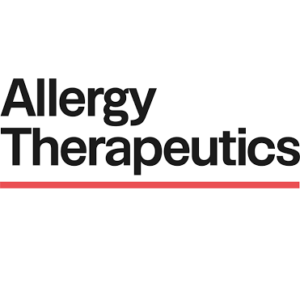Allergy Therapeutics plc (LON:AGY) Research and Development Director Tim Higgenbottam caught up with DirectorsTalk for an exclusive interview to discuss the ATL dose ranging study in the US, safety signals and how the study has been received by the US allergists
Q1: First off, can you give us an update on the progress of the ATL US dose ranging study in the US?
A1: Yes I can. We’ve just recently announced that we reached our recruitment target in terms of patients for randomisation to treatment, we’ll probably be a little bit over our expected number of 250 which is our planned number, this is very encouraging considering that we also had a major blizzard system passing through North Carolina, Philadelphia, New Jersey and New York right in the middle of the study. We managed to see our way through that quite comfortably, nobody trapped in the investigation site so it’s jolly good.
Q2: When do Allergy Therapeutics expect results?
A2: We expect to get the results probably in the mid part of May, we look as if we on track to complete on time so it’s quite an exciting time for us. One of the big messages I think to date is that we completed our safety study, the G102, in October, we didn’t have any serious adverse effects, in fact the only effects we had were injection site swellings and a little bit of pain which you’d expect for an injection, no greater really than we’ve seen in our earlier studies. So that’s quite impressive because we’re going up four times the original dose, the two new doses we tested, and we’ve now treated almost 200 patients and again seen no adverse effects. So it’s really built a lot of confidence in our product which as you know is an allergoid not an allergen-native protein product and this greatly minimises the allergic reactions and we just haven’t seen them, this is very very encouraging for the whole principal behind our product. What we’re looking for now is a significant increase with our increasing doses of the suppression of symptoms when people go into these challenge chambers. The challenge chambers are really quite good for very carefully controlling exposure so it can control exposure and therefore have very accurately the effect of the different and higher doses. So we’re really excited about this study because I think it will be changing the paradigm of allergy treatment from something you have to take for ages and ages, in America they have injections every month for three years in order to get up to the sort of doses that we can achieve in six weeks without any adverse effects, I think that’s terribly important, it’s almost a paradigm shift I think.
Q3: So what have you learnt from the work to date about the GrassMATAMPL, what are the safety signals like?
A3: Well I think, as I was saying, the signals are fairly limited. We’ve only had local injection sites adverse events and we’ve seen that before with our product and they’re probably no greater than what you normally experience with this type of treatment. I think the exciting thing is that we can elevate the dose without getting serious adverse events, systemic events and that’s an extraordinarily important finding, we’ve never in the past being able to push the dose up to this sort of level and we’ve achieved it by a number of manufacturing methods that have been adopted and by increasing the injection from four to six. So I think we’re really looking at quite an exciting product now and we go up to twice the level that we’ve normally included in terms of an injection of allergoid and that is not producing any more adverse events than we were seeing in our regional studies back in 2008. So I think it’s really quite an exciting time for Allergy Therapeutics plc.
Q4: How has the study been received by the US allergists and their staff?
A4: Well I think this is coming just at the right time, there’s a big concern in the US as you know, public concern, about compounded products because in the US most allergists provide their vaccines for their patients by receiving protein extract from compounders and then they make up the vaccination solutions themselves in their clinics. This costs quite a lot of money because they have to have experts doing that but there is a public concern about this compounding, and I think that’s slowly and surely working its way through the individual states, asking for the allergists to follow very closely the USP in the states and this will costs them a lot of money. So we’re coming in just at the right time with a medicine which is hopefully fully approved, manufactured, it doesn’t require a lot of preparation and staff to prepare it and it only takes six weeks to deliver which is another good point because there are certain states where you great difficulty getting investment for the second and third year course of injections. So I think the system’s changing very quickly in America, the demand for allergy treatments isn’t changing but people are looking for simpler and safer way of administering these vaccines so I think our product possibly uniquely is coming in to fill the bill for that and we will be, obviously if we’re successful with the phase III study which we’re hoping to bring to fruition in October of this coming year, if that’s successful then I think we’ll roll out fairly quickly our own two products for weeds and for tree and that’s I think going to be quite helpful for the US allergists.


